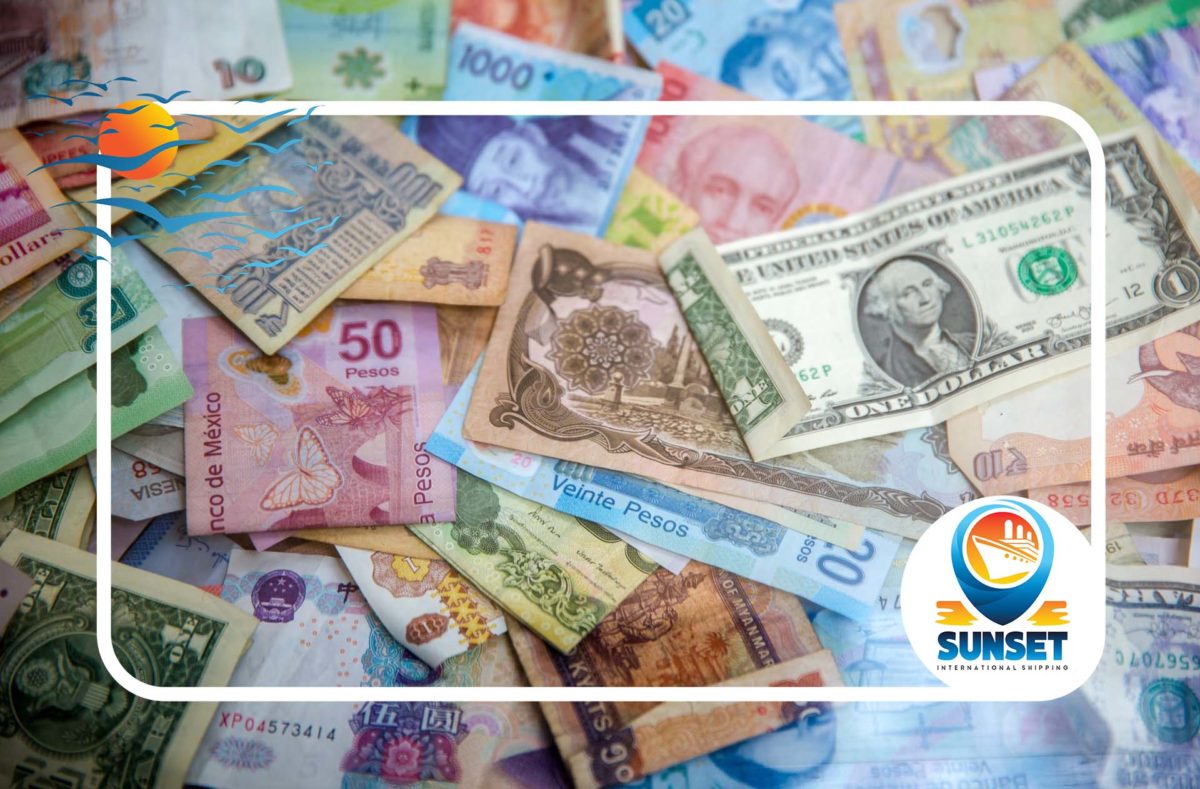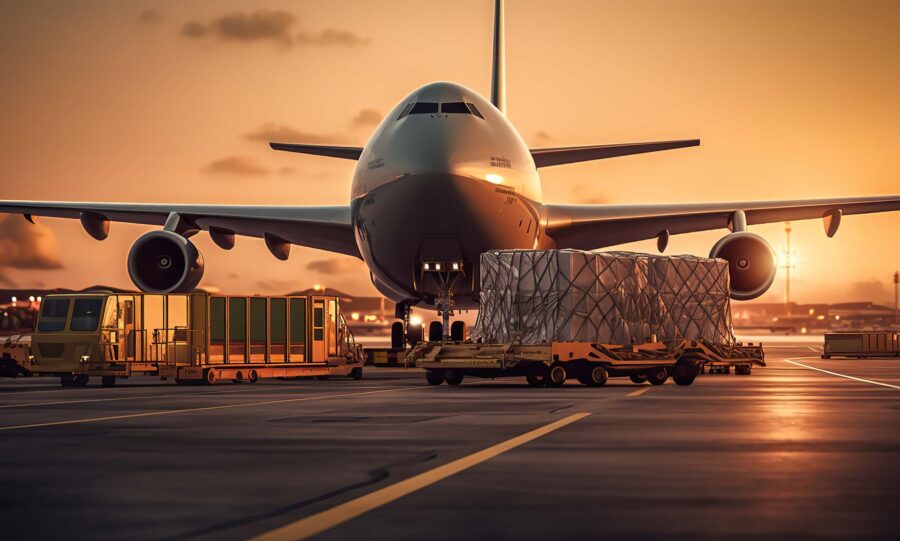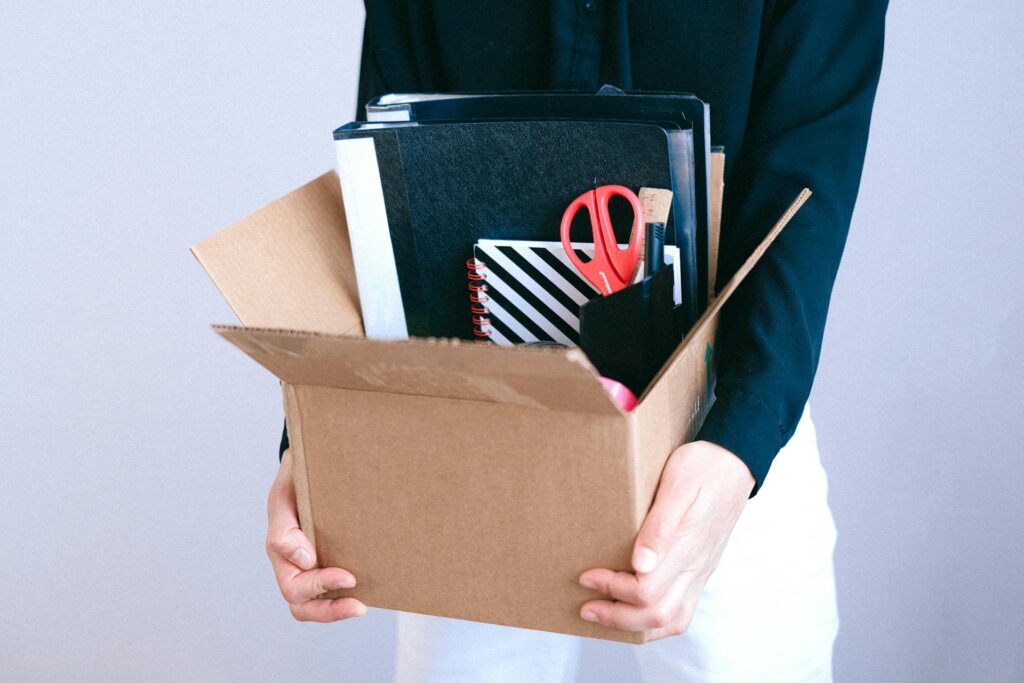When relocating overseas, there’s much to consider – from picking a country that will match your lifestyle and expectations to researching its standards, cost of living, the housing market, and job opportunities. Balancing finances abroad comes as one of the most important points to take into account. This guide will help every US expat planning a move to another country understand how the whole drill works.


If you want to plan your budget the right way, start off by choosing an international moving company carefully. Find a team of skilled movers that will help you out with overseas shipping and keeping your possessions and vehicle safe.
Learn How to Handle Finances Living Abroad by Saving in Advance
When moving across the world, you should answer several crucial questions. One of the main ones is – How do you manage money internationally? Regardless of whether you’re only planning a stay as a tourist or intending to move to a distant location for an indefinite period, it’s invaluable to know how to budget:
- Plan a budget in advance and learn how much locals usually spend – let their monthly expenses be your guide,
- Set up automatic payments in case you need to switch places or have some fees to take care of after your departure,
- Follow the exchange rates and get enough of the foreign currency even before you officially land,
- Let your banking and credit card companies know about your trip or move,
- Buy relocation insurance from the movers you’ve hired or from a third party.
You will surely use both cash and credit cards when purchasing stuff or paying bills. Most transactions can be done online – and most people prefer to keep it that way and simplify the entire process. Nevertheless, you will need to be extra safe on the internet when buying goods or making payments.
Plan Your Budget Carefully Before You Hire an Overseas Moving Company
So, how to move abroad efficiently and without having any problems with money?
- Start by making lists and spreadsheets where you will do the math and track your progress,
- Include the costs you will have when hiring an international moving company and research their price range for packing and custom crating or for renting a storage unit,
- See how much the trip itself will cost (including plane tickets, transportation from the airport, rest stops and layovers, etc.),
- Check if your passport and every other document is up to date because these documents can drive additional costs,
- Learn about the expenses for visas and other permits or forms you will need to enter the state.
Aside from these initial expenditures, be mindful of everything that will await. The rules are quite different from one area to another. For instance, in some cities, you will be required to pay for the monthly rent a few months in advance. And not to mention that every city, town, and region entails a different price range when it comes to buying and renting properties. Once you have chosen a place you’d like to call yours, run a meticulous search.
How Do I Become an Expat With No Money?
Living overseas can bring financial security. Some locations offer affordable accommodation and a fairly low cost of living. However, if you’re low on cash or between jobs while looking to move to another country, you must play your cards smartly. Begin to look for career opportunities before diving head-first into the unknown world:
- Stick with highly-ranked websites and platforms for job seekers and avoid scams,
- Do your research daily and stay in the loop regarding all openings you might find interesting,
- Build a vast network of professionals on LinkedIn (and social media) and connect with them,
- Subscribe to get updates and newsletters from prospective employers and platforms that might have employment opportunities,
- Explore housing options and see how you can find a cheap place to live,
- Learn how to document finances when living abroad by exploring all banking expenditures, payment methods, taxes, and costs thoroughly,
- Let your friends know about the move and ask them for advice – or even detailed recommendations if they have already had some similar experiences or visited the country you have set your sights on.
And here’s one ultimate tip: don’t run from part-time gigs and freelance opportunities. Finally, be sure to break the language barrier and make a killer CV to astonish your future employer and stand out from other candidates.


Use Cost of Living Calculators to Plan All Costs Correctly
Learning how to live in another country and figuring out how to adjust to the new place could take a while. However, to start off on the right foot, you should be aware of what awaits in your chosen area. And one of the main things to understand is the cost of living, housing, and the job market. The easiest way to do this is by turning to the internet – websites such as Numbeo allow you to compare the cost of living in different countries and even provide a detailed overview of the most common and significant expenses.
Share Accommodation to Save Up
Joining expat communities is always a good idea when moving internationally. Aside from the social construct that surrounds it, it will help you out with managing your daily life and handling money. One way to boost your savings and overcome some costs related to paying the rent and utilities is by finding a roommate. This is especially beneficial for college students who move to distant countries, but it can work out fine regardless of your age and status.
It’s not necessary to choose one of the friendliest countries in the world as your destination in order to find friends or even roommates. Meeting new people and befriending them is an excellent way to accept the brand-new environment and feel like you’re at home.


Learn About Expat Documents and Taxes in Your Chosen Country
Aside from gathering all information regarding the documents needed to travel abroad, there are other significant financial and bureaucratic questions you must answer. For instance, if you’re exploring the best places to live in Europe, you should know that each of them has different legal requirements and taxes you’d need to pay. Sometimes, these differences aren’t that huge, but it’s still unavoidable to get familiar with them.
Moving to Germany is an amazing choice for those looking to promote their career. However, filling out all the paperwork is tiring, and it’s not easy to get a working visa. On the other hand, relocating to Greece will entail a whole another set of rules and regulations to grasp.
So, to sum it up – although there are numerous jobs for Americans in Europe and it’s pretty easy to find a suitable place with a decent cost of living and salary range, it’s still possible to be adversely affected by permits needed to stay and the tax rate. Culture shock is not the only surprise to keep in mind, which is why it’s imperative to do thorough research.


Choose a Bank Before You Move
When looking for the best places abroad to live with family, you should look into several important things. From safety to expenses you’ll have over the year – you must cover it all. Choosing the right local bank is also one of the key things to do. If you’re going to make earnings in your new location (which hopefully – you will), it will be impossible to handle transactions without a local checking account.
Set Up an Overseas Account and Keep One Open at Home
You should set up a banking account as soon as you settle in your chosen country. And if you’re wondering Can I keep my US bank account while living abroad, the answer is yes, and it is certainly not wise to give it up.
Make sure not to transfer all your money to your newly opened account. It’s best to keep a couple of accounts or credit cards active back home and have an active balance on them. The odds suggest that unexpected things that could easily arise in your previous area after your move will require a way to pay for them.
Moreover, if an urgency occurs while you’re overseas, these backup accounts could be vital. For example, being mugged or scammed in a faraway country isn’t a fairytale scenario. No matter how safe your chosen territory is, it’s paramount to keep an exit strategy ready.
Is it Cheaper to Use a Credit Card or Cash Abroad?
What is the best way to pay for things abroad? Credit cards and ATM machines are often the right answer. You can use smartphone apps to make payments or locate the nearest ATM to get some cash.
If you want to exchange money, avoid doing it at the airport or bus stops. These places have the worst rates, and you should use them only if you don’t have any other choice. Since MasterCard and Visa are accepted in the majority of countries, they are the simplest (and most likely the cheapest) way to handle expenses if you have an account at a local bank.
Use Online Banking
How do expats get their money? There is more than one way. Signing up for online banking is always recommended, particularly if you’re living in a country where people don’t speak your language. Each expat who’s yet to learn the local language dreads paying a visit to the bank down the street. So, aside from the simplicity and affordability, online banking makes the whole transition more comfortable and less stressful. Checking your transaction history or going through your remaining balance will be quite smooth when you do it all online.
Pay All Your Bills and Loans Before the Move
Checking out whether you have some old, unpaid bills and loans and dealing with them should be at the top of your moving abroad checklist. Cross it off as soon as possible because you will unquestionably want to avoid additional headaches. Call your utility providers and schedule a final meter reading before you cancel the service. Double-check every balance with other service providers. Be extra careful with taxes and student loans or any other debts you might have. Deal with it before booking international moving services.
Compare Reviews and Pick the Best International Moving Company
If you’re wondering about overcoming moving stress, it’s nearly impossible to make it go away entirely. After all, the change itself is way too massive to feel indifferent about it. However, you can substantially lower your fears and tension by hiring the best overseas shipping company. Their expert crew will take good care of your belongings and ship your car safely to your new home.
Before selecting the crew to get international moving services from, be sure to run a background check, shortlist at least three companies before signing the deal, and request a free quote from each one of them. If you want to, you can also choose to track your shipment and be ready for when it arrives.
Make Travel Arrangements and Get Packed Efficiently
Relocating across the world is more thrilling than sailing the seas as a tourist. But simultaneously, it is far more challenging. You will have to book the flight and make reservations in advance. But there’s a lot to do before it:
- Plan your finances,
- Ensure you have enough time and money to complete each task,
- Strategize the packing process,
- Take care of your documents,
- Get the necessary visa or work permit,
- Buy plane tickets and schedule transport from the airport.
Also, knowing what to pack when moving abroad is essential for you and your budget. Taking more than you need will increase the cost of the move – which is why you should get rid of some things. Before you proceed to pack artwork, frames, and fragile items, you should ensure that you’ve packed the essentials bag. Lastly, since this step is officially the most stressful (and time-consuming one), hire professional movers and ask about the packing services they offer.


Rely on the Expert Advice and Make Balancing Finances Abroad a Smooth Experience
Statista suggests that most Americans living overseas are retired, and they’re followed by self-employed individuals who work remotely. Whatever your reasons and intentions are, follow the necessary steps to move smoothly, avoid scams by picking the best international movers, skip the unnecessary costs and drama. Use online banking and have more than one account to manage finances at home when living abroad. That way, your financial state will be easily maneuvered and excellently coordinated. In the meantime, try local meals, go for walks, visit the hot spots, and learn about the new culture. Don’t forget to keep in touch with friends and enjoy your new life!







